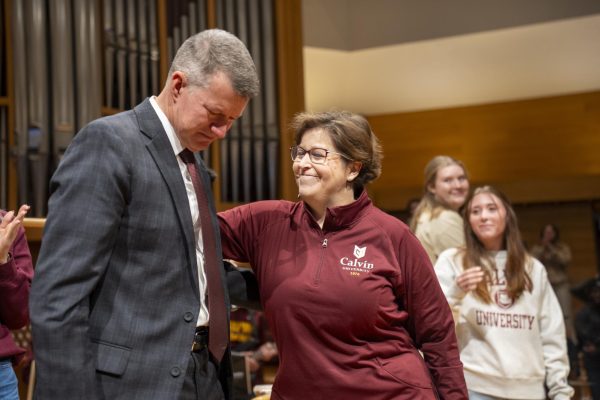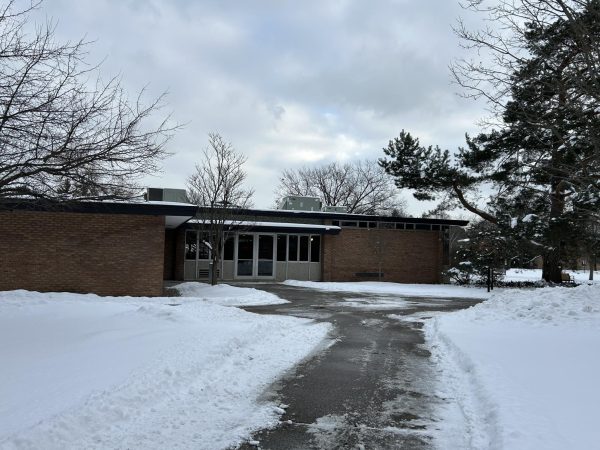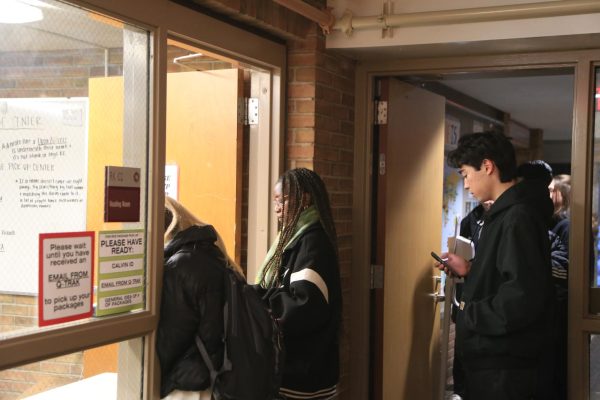Bee crisis prompts beekeeping student organization
In the United States there is a bee crisis; the honeybees are disappearing due to what experts are referring to as colony collapse disorder. During the last winter alone, nearly one-third of the honeybee population died off.
But more is at stake than a species of insects. The future of our food supply, and even our population, are all affected by honeybees.
Calvin students and faculty are making attempts to do their part on the local scale.
Professor Jason VanHorn in the geology department is very enthusiastic about the prospects of the new beekeeping club on campus. VanHorn is the faculty advisor who initially organized the club.
“I have been overwhelmed by the interest,” he said, pointing out that about 30 students have expressed interest in being involved and this interest continues to grow.
What can the students of Calvin College do to help this national crisis?
The students and faculty getting involved with the club have their first informational meeting on Monday, Sept. 30 at 7 p.m. in North Hall 078.
The fall and winter meetings will be more centered on the informational parts of beekeeping.
VanHorn also has several documentaries in mind for the group to view. For the convenience of students who are committed to other activities, there may be several different times when people can meet.
VanHorn is unsure of exactly where the group will keep the bees once spring arrives, but there is a potential for high success in the nature preserve on campus, where it will be easier to see the outcome of the beekeeping. VanHorn would like the club to stay as inexpensive, naturalistic and least harmful as possible.
The hobby of beekeeping is apparently relatively simple. Most of those who are involved have previous experience in beekeeping; however, there are no worries for inexperienced members since they will learn through practice, he said. Between the students, faculty, informational videos and websites available to those involved, there will be plenty of information to help the newcomers.
VanHorn is hoping that, in addition to getting actual experience in beekeeping, the group will get to see other apiaries (places where beehives of honeybees are kept) such as: local hobbyists, faculty members with apiaries, local families of students with apiaries and maybe, one day seeing how bees pollinate on a commercial scale.
VanHorn said, “I would also hope to have a few guest speakers and at least one formal research presentation given in the spring by students from the group around the topic of beekeeping.”
There has been more buzz generated by the topic of bees on campus than most would’ve expected, but there is plenty of room for growth.






